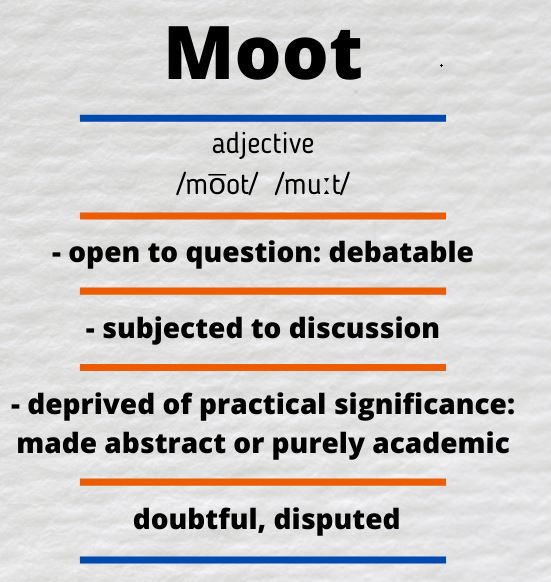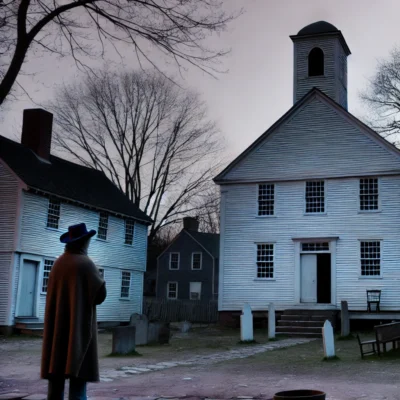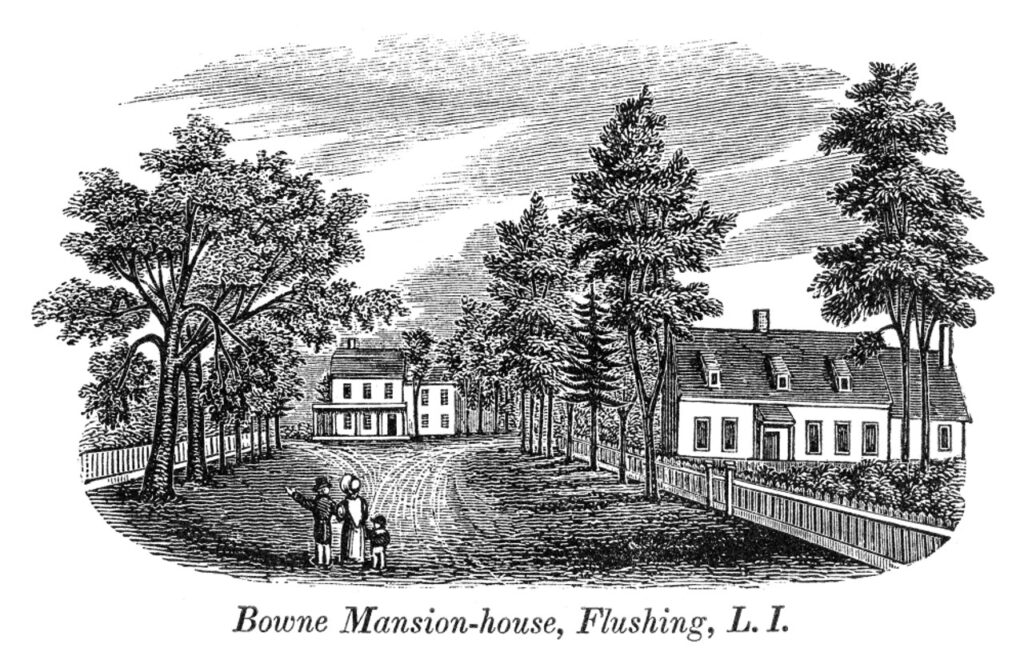
The Parable of the Silent Meeting House
Beezone

In the early 1800s, a weary traveler arrived in a small New England town as dusk settled over the hills. The town seemed prosperous, with tidy homes and well-kept fields, but the traveler’s eyes were drawn to a tall, white-steepled building at the center of the village. It had to be the meeting-house, he thought, a place where people gathered to share their thoughts and discuss matters of importance.
The traveler, longing for conversation after days on the road, approached a man closing up his shop and asked, “Can you tell me when the next meeting will be held in the meeting-house? I’d like to hear the townsfolk’s views and perhaps share my own.”
The shopkeeper frowned and shook his head. “Oh, there are no more meetings here, stranger. Not in the way you mean.”
“No meetings? But isn’t that the purpose of such a house?”
The shopkeeper sighed, his voice tinged with both pride and regret. “There was a time, yes, when we’d gather to discuss the needs of the town, the Word of God, and the pressing questions of life. But no longer. The elders have decided there’s no need. They’ve settled all the questions that might be raised.”
“Settled?” the traveler repeated, puzzled. “What if someone has a new question or seeks clarification?”
The shopkeeper gave a sad smile. “The Word of God, they say, is perfect and unchanging. There’s nothing to clarify. As for town matters, the authorities decide what’s best. They say it spares us the trouble of argument and ensures harmony.”
“But harmony without understanding is an empty peace,” the traveler said. “What if someone has something important to say?”
The shopkeeper glanced at the meeting-house, now silent and dark. “Those who speak of new ideas often find their words unwelcome. Some leave the town. Others fall silent.”
The traveler’s heart grew heavy. “And you? Do you miss the old debates, the sharing of thoughts?”
“I do,” the shopkeeper admitted. “We were once a people who found truth in discussion, who believed in learning together. Now, I fear we’ve forgotten how to listen, how to grow.”
The traveler nodded solemnly. “Then this meeting-house, though it still stands, is no longer a house of meetings. It is merely a monument to what once was.”
The shopkeeper said nothing, but his eyes betrayed his agreement. The traveler tipped his hat, thanked the man, and continued down the road. As he left, he felt a deep sadness—not for himself, but for the people of the town, who had traded the vibrant exchange of ideas for silence and certainty, forgetting that growth only comes from questioning and that true harmony is born of understanding, not enforced quiet.
And so, the traveler journeyed on, searching for a place where the light of discussion still burned bright.
***
The Meeting-Houses: America’s Lost Tradition

When the Roman legions tried to conquer the Anglo-Saxons, they faced something unique—villages, or tuns, bound together in a way they hadn’t encountered before. Each tun was independent, managing its own affairs, and every householder had a say in decisions affecting the community. These villages had a moot—a meeting-place where everyone gathered to discuss issues, solve problems, and decide on important matters. This spirit of self-rule and debate was central to their way of life. Over time, the buildings where these debates happened became known as meeting-houses.
Fast-forward to the arrival of the first settlers at Plymouth Rock. These early pioneers brought this tradition with them. Their community was like a new tun—a small, self-reliant group carving out a life in the wilderness. One of the first things they built was a meeting-house. It wasn’t just for Sunday worship, though that was important. The meeting-house was where they discussed everything: roads, schools, hunting bounties, even quirky issues like putting yokes on geese or fitting pigs with nose wires to stop them from rooting. Every voice mattered, and decisions were made together.
These meeting-houses became the heart of New England towns. They weren’t just places for church services; they were the stage for some of America’s earliest democratic debates. When war came—whether fighting the Pequots or rallying troops for the Revolution—it was in these meeting-houses that people gathered, prayed, and planned. The fiery sermons from their pulpits often lit the spark of action. These humble buildings symbolized unity, where neighbors came together to solve problems and face challenges as one.
But today, that tradition has faded. Meeting-houses and town halls, where people once came to share their thoughts and listen to others, are largely gone. Instead, people now get their information in isolation—on phones, TVs, and social media feeds that often serve up only what they already believe. There’s little room for open discussion or real debate. Instead of hearing different perspectives, people stay locked in their own views, often fueled by misinformation or half-truths.
Imagine how different things might be if we had modern meeting-houses—places where people could come together, not just to agree but to listen, to learn, and to find common ground. The early settlers knew the importance of these spaces, and they used them to build communities and solve problems. Today, as our divisions grow deeper, maybe it’s time to borrow a page from their book. After all, the future of our democracy might depend on finding ways to meet—both physically and in spirit—and to truly hear one another again.